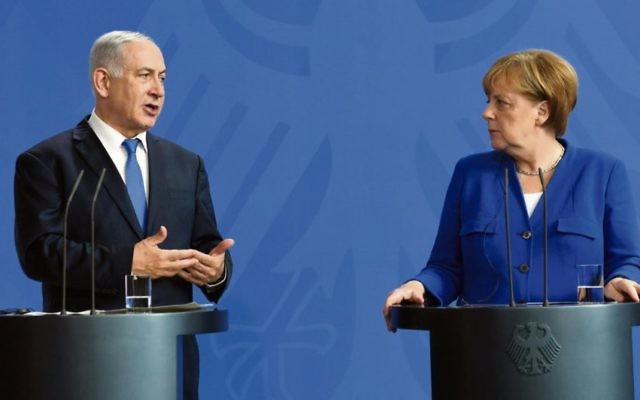Iran steps up nuclear enrichment
Iran's Supreme Leader Ayatollah Khamenei said that he is ordering preparations for the increase of uranium enrichment, within the limits of Iran's nuclear deal "for the time being".

IRAN may take an express route to nuclear capability, its leadership warned this week, suggesting that Israel’s nightmare scenario could be on the cards soon.
Iran’s Supreme Leader Ayatollah Khamenei said that he is ordering preparations for the increase of uranium enrichment.
It will be within the limits of Iran’s nuclear deal “for the time being”, he said.
The comment came as he intensified his rhetoric against Israel, declaring on Twitter that the Jewish State is a “malignant cancerous tumour in the West Asian region that has to be removed and eradicated”. And the destruction of Israel “is possible and it will happen”.
Shortly after Khamenei’s comments, his nuclear chief transformed the implied threat into more of an open one. Ali Akbar Salehi said that new centrifuges which, under normal circumstances would be ready in “six or seven years”, could now be ready within “weeks and months”.
He was quoted saying that if the nuclear deal collapses – a strong possibility now that the US has pulled out – Iran “will assemble new generation of centrifuges”.
Israel was “not surprised” by Iran’s threats, said Prime Minister Benjamin Netanyahu.
He said on Tuesday, “The day before yesterday Ayatollah Khamenei, the ruler of Iran, declared his intention to destroy the State of Israel.
Yesterday he explained how he would do this – with the unrestricted enrichment of uranium in order to produce an arsenal of nuclear bombs.
“We are not surprised. We will not allow Iran to obtain nuclear weapons.”
Despite Netanyahu’s confident tone, he is facing an uphill battle in trying to get European leaders on board with him regarding Iran.
He flew to Europe on Monday, saying that he was going to “raise two issues there: Iran and Iran”.
He elaborated, “First of all, there is the need to continue the pressure on Iran against its nuclear program. I believe that this pressure should be increased.”
He acknowledged that the leaders of the countries he went to meet – Britain, Germany and France – are still committed to the Iran deal, but said that an “understanding” with Israel over what should happen “will take shape”.
The other issue he set out to discuss is “blocking Iran’s aggression in the region, especially its attempts to establish a military presence against us in Syria and attack us from there”.
On this, there seems to be a shift with more enthusiasm internationally – including now from Russia – for moving Iran away from Syria, just across the border with Israel.
While German Chancellor Angela Merkel was cool towards Netanyahu’s views on the Iranian nuclear deal, she was more responsive to his concern that Iran “is trying to conquer the Middle East”, including by building strength on Israel’s doorstep, in Syria.
Merkel said, “We support Israel’s right to security and have said this to Iran at all times,” adding, “We have the same goal that Iran must never get a nuclear weapon and the difference between us is how to do that.”
In France, Netanyahu met President Emmanuel Macron, and said afterwards that they focused on the need “to stop Iranian aggression in the region”. They acknowledged that they differ on the Iranian nuclear deal – but Netanyahu suggested that his view will win out because the economics of America reimposing sanctions could cause the deal to collapse.
Israel’s geopolitical headaches grew this week, due to events in Jordan. Mass protests against the regime and its tax rises and austerity measures gripped the country, resulting in the resignation of Prime Minister Hani Mulki.
Jerusalem made peace with Amman in the 1990s and regards stability in Jordan as good for Israel.
NATHAN JEFFAY

comments